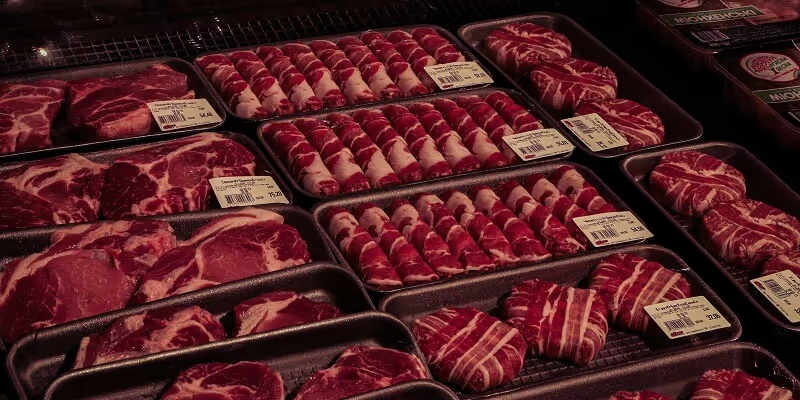Innovate your meat and seafood processing operations. Meat and seafood processors across the U.S. are continually advancing deboning automation, traceability systems, hygienic design, cold‑chain distribution, and new packaging or processing methods — many of these activities meet the criteria for the federal R&D Tax Credit under IRC §41 (and many state programs as well).


Examples of qualifying activities in meat & seafood processing
- Automation & Deboning Technology Development Testing new robotic/flexible deboning systems for variable‑sized fish or poultry, measuring yield improvements and cycle time reduction.
- Traceability, Food Safety & Hygienic Design Developing or trialling sensor/vision systems to detect contamination or allergens, redesigning process flows and line layouts to minimise cross‑contact, validating cleaning/disinfection methods for high‑throughput plants.
- Packaging & Shelf‑Life Innovation Experimenting with modified‑atmosphere packaging (MAP), high‑barrier films, vacuum skin packaging to extend shelf life of chilled/frozen seafood or meat, under different distribution temperatures and humidity profiles.
- Cold‑Chain Process & Logistics Trialling new blast‑freezing techniques or thaw‑pack workflows, real‑time temperature monitoring systems, energy‑efficient freezer/freezer‑train design, reducing ice‑crystal damage in fish fillets (which impacts texture/yield).
- Sustainability & Waste‑Reduction Systems Developing by‑product utilisation (e.g., fish skins/bones to value‑added ingredients), capture of cooling exhaust heat, optimisation of water usage in processing, trialling new sensor systems to minimise scrap and rework.
What qualifies as R&D in Meat & Seafood Processing?

To qualify, your meat or seafood processing activities must:
- Pursue a permitted purpose — such as a new or improved cut optimisation process, automation in seafood sorting, a novel packaging or shelf‑life solution for chilled/frozen products, or enhanced traceability and food‑safety system.
- Address technical uncertainty — for example: “Can the new robotic deboning line handle variable fish sizes while maintaining yield and reducing waste?”, “Will this vacuum‑pack system extend shelf life of fresh‑seafood under variable cold‑chain conditions?”, “Can we integrate real‑time sensor‑based tracking of contamination while meeting throughput targets?”
- Follow a process of experimentation — pilot runs of new equipment, trials of packaging formats, process redesigns, sorting algorithm testing, microbial/hygiene validation of new protocols.
- Be technological in nature, grounded in mechanical/automation engineering, sensor/vision systems, food‑safety science, packaging materials engineering, or cold‑chain logistics design.
Qualified Research Expenses (QREs)
Roles commonly involved in qualifying activities
- Process & automation engineers for deboning/packing lines
- Food safety scientists and QA/R&D technicians
- Packaging/material engineers specialising in chilled/frozen meat/seafood
- Cold‑chain logistics and thermal engineers
- External testing labs or automation vendors engaged in trials
What does not qualify
- Routine deboning/packaging operations without experimentation or change
- General sales, marketing, administrative or standard production tasks
- Implementing a known processing system without addressing technical uncertainty or improvement
- Facility expansion, new equipment purchases for scale‑up without research/trial component
Compliance and Documentation
Following the One Big Beautiful Bill Act (OBBBA) signed July 4, 2025, §174 now allows immediate expensing of domestic research expenses for tax years beginning on or after January 1, 2025. Taxpayers may also elect optional amortization under new §174A. Foreign research expenses must still be amortized over 15 years. This is separate from the §41 credit but impacts overall tax planning.
Meat and seafood processors should document:
- Project descriptions of technical uncertainty (e.g., target yield increase, waste reduction, new packaging performance under “X °F/90%RH for Y days”)
- Pilot‑line test logs, equipment layout changes, sensor/vision data, results (yields, scrap, downtime)
- Payroll records and time‑tracking for R&D/support staff
- Material test results, packaging film performance data, microbial/contaminant test reports
- Retrospective summaries of alternatives tested, lessons learned, and result‑based improvements
Frequently Asked Questions
Yes — if your operation is engaging in research or experimentation into new or improved processing systems, packaging or cold‑chain logistics, rather than purely routine operations.
Wages of R&D, pilot trial and support staff; supplies/prototype materials (packaging, sensors, raw batches for trial); software and data tools; third‑party research/consulting costs related to qualifying experiments.
Examples include: robotic deboning trials; new freezing/thawing/packing methods for seafood; packaging tests to extend shelf life of chilled meat; real‑time sensor/vision systems for contamination detection; by‑product utilisation pilots.
Standard production without innovation, scaling up existing lines without experimentation, routine maintenance or housekeeping tasks, or general administrative operations.
Savings vary widely based on project size, scope, and documentation quality. Some industry sources note credits up to ~22% of qualified research expenses in combined federal/state programs.
Maintain detailed plans and hypotheses, trial logs showing process/packaging/line changes, time‑tracking of R&D resources, material and film test reports, sensor/vision data, yield/scrap comparisons, and summary narratives of experimentation and results.
Next Steps
Use our calculator to estimate your potential federal and state benefits
Schedule a consultation to structure your row crop research activities
If you are innovating in agriculture, you may already be doing R&D. Let's make sure you are rewarded for it.
Contact Strike Tax Advisory
Ready to maximize your R&D tax credits? Get in touch with our team of experts.

Food & Beverage
With just a little info, our Strike Experts can help you start your R&D tax credit journey.
Got questions?
We’ll walk you through our process and take the time to understand yours to make sure you get the most back.
Schedule a MeetingRelated Sub-Industries
Does your state qualify for the State R&D Tax Credit?
Benefits for the R&D Tax Credit vary from state to state. Get an accurate estimate of your potential state tax credit!






